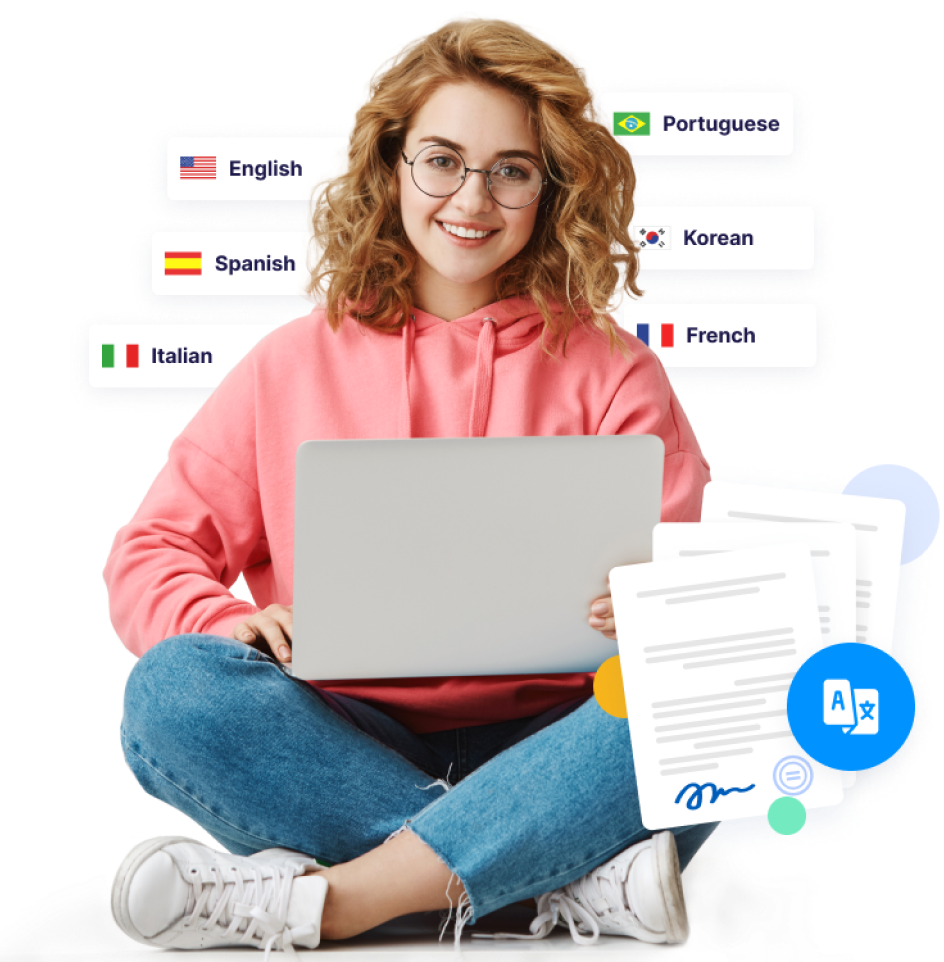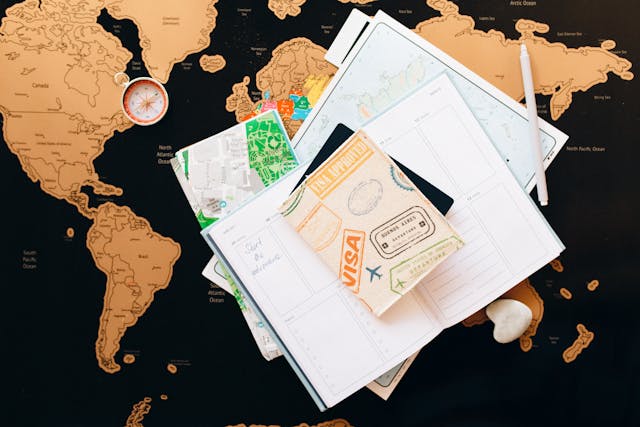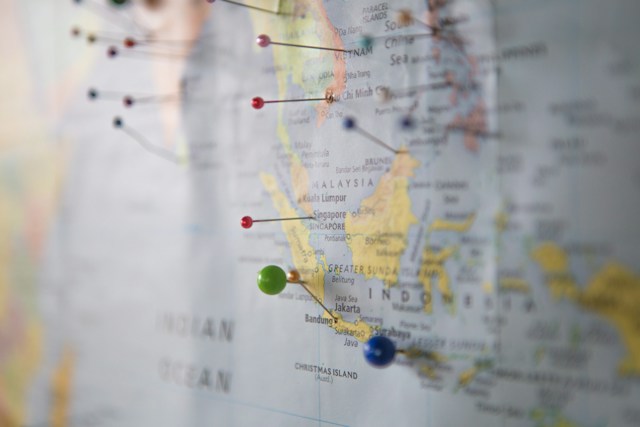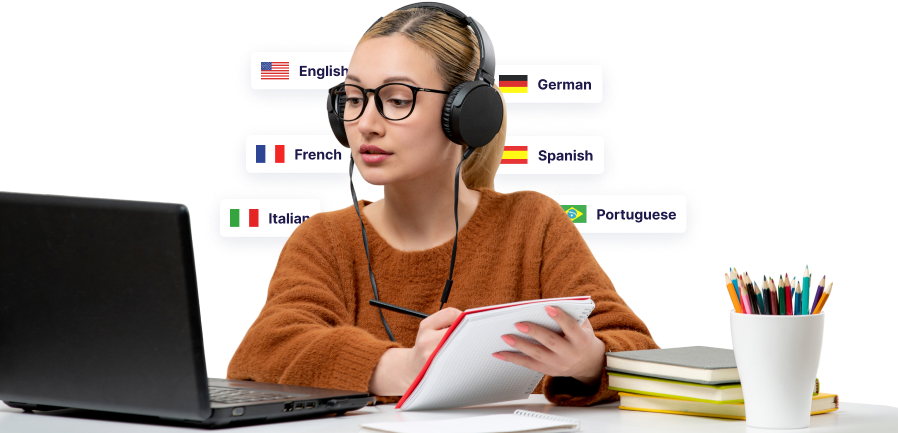Rapid Translate Team
Language barriers are natural, and they’re everywhere. And while we’ve made strides thanks to handy translation apps on our phones, we still need to improve quality. When it comes to the crunch, like legal documents or official records, you need more than just a basic translation. That’s where official translation services step in.
A lot is riding on getting translations right. In the following sections, we will uncover the intricate world of official translations.
Table of Contents
What Are Official Translation Services?
According to the Institute of Translation and Interpretation, official translation services provide translations that an authority will approve. Official Translation Services are different from your everyday run-of-the-mill language translation apps. They don’t just convert words from one language into another. When documents need to be authentic, official translation services come into the picture.
Imagine you’re relocating to another country. Along with the excitement of the move, there’s a mountain of paperwork. You must present your birth certificate, academic transcripts, marriage certificate, or legal affidavits to regional authorities. You need to ensure the translated document accurately represents the original without misinterpretation. This is the gap that official translation services fill.
In essence, official translation services are the unsung heroes behind seamless international transitions in academia, business, or personal papers. They ensure that your essential documents will be correct no matter where you go.
Understanding the Different Types of Translations
Have you ever tried reading a foreign menu and ordered something unexpected? Or did you watch a subtitled movie and feel the words didn’t quite capture the essence? That’s because translation is about more than just swapping words. It’s a whole world with different rules for different contexts. Let’s peel back the layers and get to know what’s what.
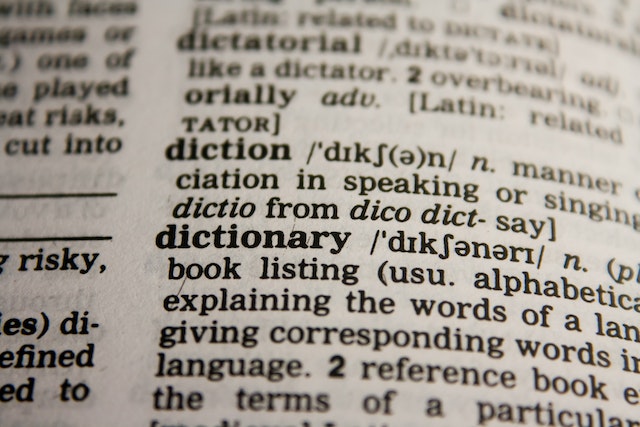
Standard vs Official Translation
So you’ve got a text that needs translating. Easy. Well, only sometimes. Translations are more than one-size-fits-all, especially when distinguishing between standard and official ones.
- Standard Translation: This is the kind of translation you’d need for a blog post, a magazine article, or a book. It captures the content’s essence and message without needing formal certification. The focus here is on readability and ensuring the audience grasps the general idea. You could use sites like Fiverr or Upwork for these translations.
- Official Translation: These are translations of official documents like birth certificates, legal papers, or immigration documents. What sets them apart is that any translator does not just do them. They’re typically carried out by a professional certified by a recognized professional body.
So, the next time you need something translated, pause and consider the nature of your document. Knowing the difference between standard and official translations can save you a lot of headaches.
When Do You Need an Official Document Translation?
Sometimes, you need precision, authenticity, and an assurance that your document is official. When do you specifically need an official document translation?
- Immigration Processes: If you’re applying for a visa, permanent residency, or citizenship in another country, you must submit personal documents. These might include birth certificates, marriage certificates, and criminal record checks.
- Academic Applications: International universities often require transcripts, diplomas, and other educational records. These must be translated to ensure the official institutions understand your academic achievements and qualification types.
- Legal Proceedings: Engaging in a legal battle overseas or dealing with international laws? Legal documents, contracts, and affidavits must be officially translated to be admissible in a foreign court.
- Medical Emergencies: When seeking medical attention in another country, your medical records might need an official translation. This will help your doctor grasp your medical history fully.
- International Agreements: Engaging in treaties or agreements between countries? These crucial documents often require the highest level of translation accuracy.
An Official translation is important for accuracy and credibility despite the convenience of informal translations. It gives you peace of mind and ensures you preserve and understand crucial details.

How To Become an Official Translator?

Have you ever wondered how to become an official translator? Have you read an official document in another language and marveled at the clarity of its translation? Professional translators go beyond basic language skills to create clear and concise text. If you’ve ever wondered what it takes to become an official translator, you’re in the right place.
Official Translation: Understanding the Basics
Becoming a translator requires more than just knowing another language; it also involves understanding cultural subtleties. If you’re considering taking on this journey, please acquaint yourself with a few fundamental truths and considerations.
- Passion for Language: A love for languages is the root of every great translator. Effective communication involves more than just speaking two languages. It’s about understanding language rhythm and conveying message meaning.
- Cultural Proficiency: Being fluent in a language is one thing; understanding its cultural background is another. A translator’s role often involves bridging linguistic and cultural gaps. This cultural intelligence is crucial in avoiding pitfalls and ensuring that translations resonate with their intended audiences.
- Ethics and Confidentiality: You’ll often deal with sensitive documents as an official translator. Upholding a solid code of ethics, ensuring privacy, and maintaining confidentiality are non-negotiables in this profession.
- Continuous Learning: Languages evolve, and so should you. The most successful translators continuously hone their skills, stay updated with linguistic changes, and engage in professional development.
- Specialization Consideration: While it’s possible to be a generalist, many official translators choose to specialize in areas like law, medicine, or business. This ensures their official translation is the best it can be.
- Networking: Building relationships with other professionals, attending workshops, and joining associations can give you an edge. They provide invaluable learning opportunities, potential job leads, and an understanding of industry trends.
While this journey may seem daunting, remember that every seasoned official translator began with these basics. You can pave your path in official translation with dedication, continuous learning, and a genuine passion for bridging language barriers. If you would like more information, The American Translators Association also has a guide to ATA certification.
Official Translation: Exams and Accreditation
Earning the title of an “official translator” isn’t just a matter of being fluent in multiple languages. It’s a rigorous process, often involving exams and accreditation to prove your skills. Let’s unravel the journey to becoming a certified translator:
- Certification for Translators: The path to becoming a translator begins with passing a certification exam. These exams come at the end of a Diploma of Translator and test language proficiency, understanding ethics, and best practices.
- Peer Reviews: Some organizations require peers to assess your work before granting certification.
- Continued Education: Organizations require translators to maintain certification through ongoing education.
- Code of Ethics: Often, certified translators are bound by a code of ethics, ensuring professionalism, confidentiality, and the highest work standards.
Being accredited elevates a translator’s credibility and opens doors to more opportunities. It assures clients that they’re entrusting their documents to a qualified professional.
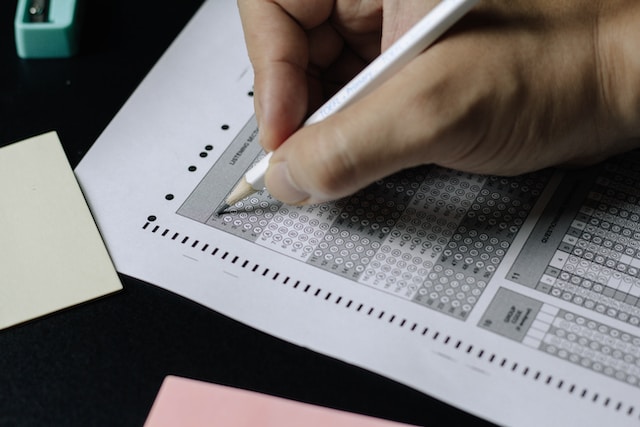
Official Translation: Building a Portfolio
Creating a portfolio of your official translation work is more than just a collection of your past works. It’s a testament to your skill, versatility, and professionalism. Here’s a roadmap for budding translators to create an impactful portfolio:
- Diversify Your Projects: Don’t limit yourself to just one kind of document. You demonstrate adaptability and a broad skill set by showcasing a range of translations—from birth certificates to business contracts.
- Highlight Specialized Work: Have you translated a complex legal document or a technical patent? Make sure these shine in your portfolio. They indicate your ability to handle niche subjects with precision.
- Keep it Updated: As you gain more experience and take on more challenging projects, ensure your portfolio evolves. Remove older pieces that no longer reflect your best work and replace them with more recent, impressive translations.
- Highlight Your Credentials: Remember those exams and accreditations we discussed? Flaunt them! Showcase any certifications, training programs, or workshops you’ve attended. It reinforces your professional standing.
- Ethical Considerations: Always ensure that you have permission to display any translated work, especially if it’s of a sensitive or confidential nature. If not, anonymize or redact specific details to maintain privacy.
Potential clients need to know they’re handing over their documents to someone competent, professional, and reliable. A well-constructed portfolio bridges the gap between a translator’s abilities and a client’s needs.
Finding a Certified Translator
In our globalized world, where business, academia, and personal affairs often span continents, precise translation is essential. But how do you find someone trustworthy, competent, and with the right expertise? Let’s dive into the world of official translation services.
AI Translations: Are They Suitable?
The digital revolution has dramatically transformed how we work, and the field of official translation is no exception. With Artificial Intelligence (AI) advancements, machine-driven translations have become increasingly popular. However, the critical question remains: Are they suitable for all translation needs?
- Speed and Volume: AI translation tools like Google Translate and DeepL are great for fast translations and understanding foreign content.
- Continuous Learning: Designers create modern AI translation models to learn over time. With each translation, they refine their algorithms, aiming for greater accuracy.
- Limitations in Nuance: While AI has come a long way, it often needs help with the subtleties, idioms, cultural nuances, and context. When a machine translates a phrase verbatim from one culture, another culture might misconstrue it.
- Official Documents: For legal, medical, or official documentation, the stakes are high. A mistranslation can have serious consequences. In these cases, human expertise and certified copies are imperative. Currently, machines can’t guarantee the accuracy and contextual understanding required.
- Ethical Concerns: There’s also the matter of data privacy. AI translation tools might store confidential content in the cloud, compromising security.
AI translations are fast and cheap. But they can’t match a human translator’s knowledge, perception, and cultural awareness. Technology may close the gap in translation, but human understanding is still essential for cultural nuances.

Official Translations: American Translators Association
Finding a qualified professional can be a daunting task in the vast realm of translation. This is where the American Translators Association (ATA) steps in.
- A Trusted Directory: The ATA’s directory of expert translators and official interpreters is an official list that makes locating translators with professional experience easy. Customize your search by language pairs, specializations, and other criteria to find the right translator.
- Assurance of Quality: Every translator on the ATA’s public list is bound by its strict code of ethics and professional practice. This guarantees the quality of the official translation.
- ATA Certification: Many translators within the ATA’s directory boast the prized ATA certification, which is a testament to their exceptional translation skills. Earning this certification involves clearing a stringent exam that evaluates linguistic capabilities, cultural understanding, and technical translation proficiency.
- Specialists for Every Need: Find reliable translators for various industries through the ATA directory. It hosts professionals with active official interpreter status to be your conference interpreter.
- Global Reach: While the ATA has its roots in the US, its directory includes members from over 100 countries.
The American Translators Association is a trusted compass when the stakes are high, and there’s no room for error. It guides individuals and businesses to certified translators who ensure they convey their message accurately, effectively, and with cultural finesse.
The Best Translators Are on Rapid Translate
When it comes to tracking down top-notch translation services? That search can feel like finding a needle in a cyber haystack. Yet, here’s a little insider tip: Rapid Translate has emerged as the go-to hub for this.
There are no rookies, only seasoned pros. Every translator you stumble upon has been through the rigors, tested and verified for their linguistic prowess. The cherry on top? Using Rapid Translate feels like a breeze. There is no complex jargon or convoluted sign-up. It’s just a straightforward, user-centric experience. We even have a speedy delivery timeframe.
So, in a world where communication can make or break opportunities, why not opt for the best? So, dive in, order now, and experience the power of seamless communication.
